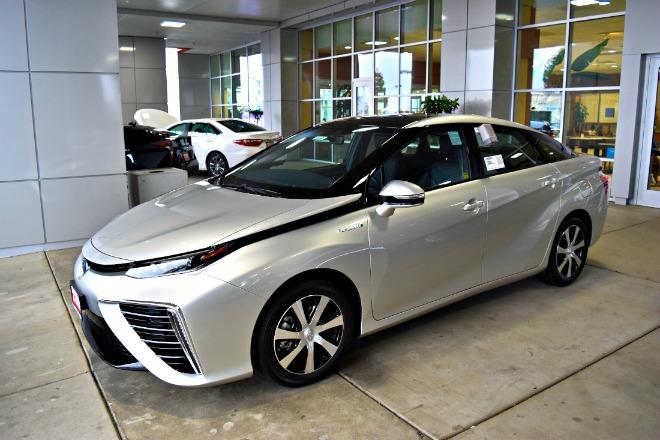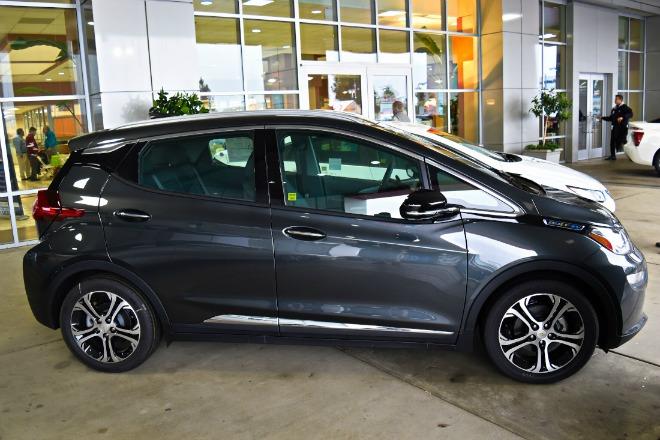I recently attended a gathering for alternative fuel vehicles, hosted by Sacramento Clean Cities Coalition (SCCC). The SCCC is part of a national network that supports the reduction of petroleum consumption in transportation.

All images © Bruce Aldrich/2017




Several alternative fuel vehicles were on display, including the Toyota fuel cell car called the Mirai. The Mirai is a good-looking midsize sedan fueled with compressed hydrogen. The compressed hydrogen passes over a fuel cell stack to produce electricity for the electric drive motor. The Mirai has a 300-mile range, takes only three minutes to fill, and drives like any other car. It’s perfect, but where do get hydrogen at 5,000 psi?
Chris White, with California Fuel Cell Partnership, said California currently had 25 hydrogen fueling stations. Twenty-five more stations are under construction. The current goal is to have 100 charging stations in California by 2020. This entire infrastructure is taxpayer supported, but the VW diesel lawsuit may provide funding in the future.
Judy Cunningham, fleet manager and Mirai representative, told me there are currently 1,000 Mirais on the road. The $57,000 dollar Mirai is typically leased for three years and includes free fuel, roadside service, and vehicle maintenance.
From my perspective, electric cars are becoming a viable alternative to internal combustion cars. Charging stations are being built along national highway corridors and battery range is increasing. The all-electric Chevy Bolt could be a game changer. It gets 238 miles per charge and costs less than $40,000 dollars. You can charge it at home or at hundreds of charging stations.
Electric cars are quickly gaining acceptance and will continue to flourish. The alternatives will just fade away. An electric car can be charged on house current if necessary. The backup plan for an empty fuel cell car is a tow to a fueling station.
Article Last Updated: August 4, 2023.
Hydrogen fuel cells provide an competitive alternative to the conventional fuel. Fuel cells are a promising technology for use as a source of heat and electricity for buildings, and as an electrical power source for electric motors propelling vehicles. Fuel cells operate best on pure hydrogen. But fuels like natural gas, methanol, or even gasoline can be reformed to produce the hydrogen required for fuel cells. Some fuel cells even can be fueled directly with methanol, without using a reformer.
Biased much? Chargers are also funded via public money, or via all our utility bills whether we have a battery car or not. And I believe, with an average range still at/below 100 miles, the back up plan for a battery car is also a tow truck.
If we as a society want to wean ourselves off of petroleum fuels; we need all viable options to have a chance to find their way into the market and give consumers multiple choices. Both electricity and hydrogen are energy carriers, giving them both the opportunity to deploy today with a fossil fuel feedstock but can transition to renewable sources as we progress. Why not give both zero emission vehicles the opportunity to succeed without biased bashing in the early year, and see how and where they find their markets? Gasoline and diesel coexisted, as have many competing technologies, so how about we approach these alternatives with the “and” approach instead of “either/or”?!
Check out the new Chevy Bolt’s specifications. It gets over 200 miles on a charge. Same with the Tesla products. You can charge electrics on 110 volt current if needed. Compressed Natural Gas and Fuel Cell cars were given the same chance as electrics and look where they are. Electrics won. In California there are actually business models (profits to be made) for charging stations now. I would like to be optimistic about the other technologies but these social experiments are very costly.